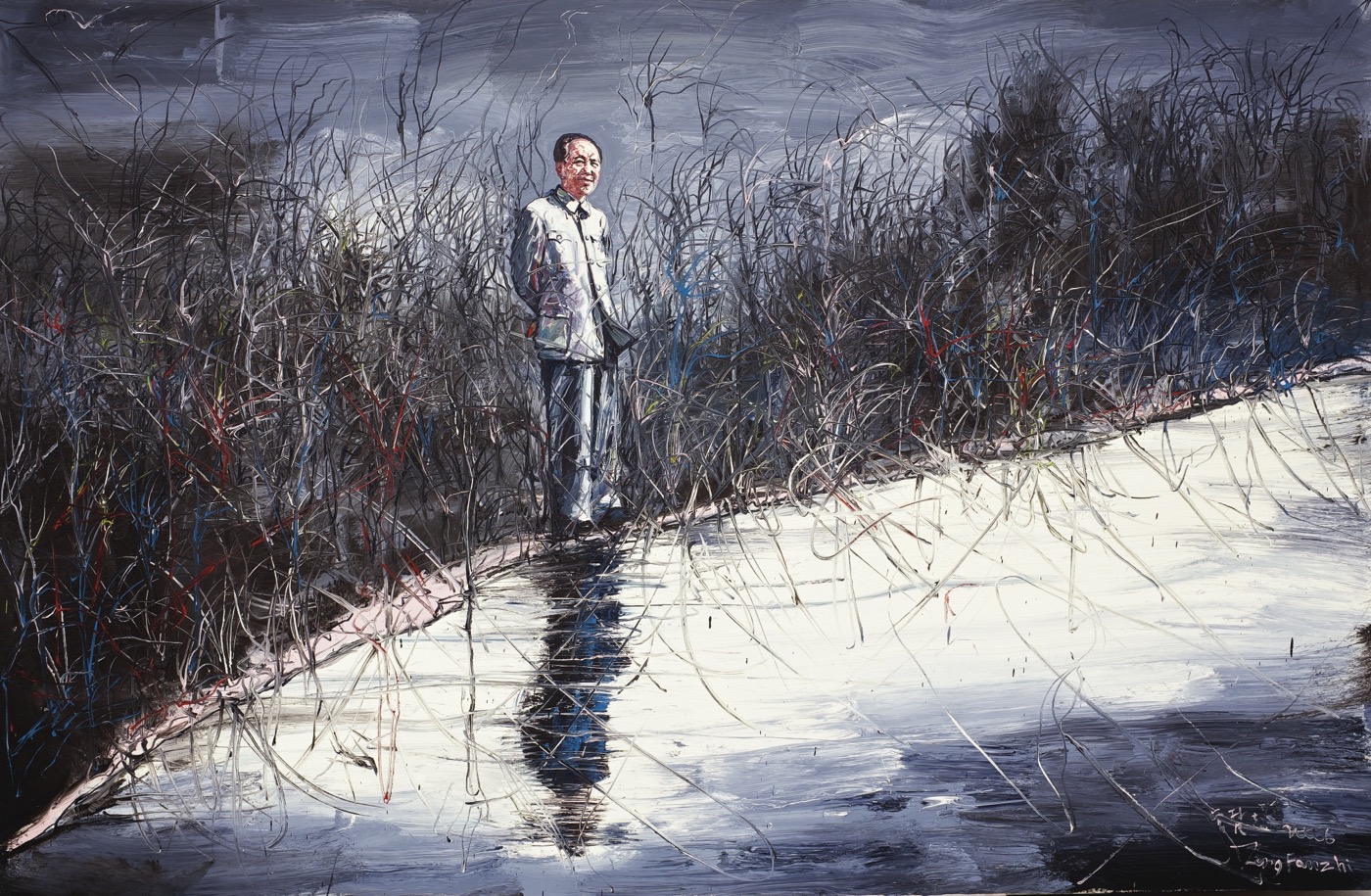Kuora: Irony and postmodernism in China

This week’s column comes from one of Kaiser’s answers originally posted to Quora on June 21, 2015.
To what extent does postmodernism exist in China?
In this Sports Illustrated longread about Kobe Bryant, a young producer by the name of Jake Bloch refers to China as “preironic”:
In the U.S., or many other places, there would be an acknowledgement of [this online reality show’s] naked marketing, an eye-rolling, snark-soliciting acquiescence by those on hand. Not here. Here they eat it up. Jake Bloch, Gotham’s 25‑year-old producer, who happens to be half Chinese, refers to it as China’s “preironic” mind-set. When Kobe signs basketballs at the end of one taping and throws them to the crowd, scrums break out as dozens of teens grapple and fall and tear at the leather. It is disturbing. Like Lord of the Flies. At one point during the taping of the show, a girl plays the trumpet for Kobe, one-handed, while dribbling a basketball, and the song is Celine Dion’s “My Heart Will Go On,” the romantic ballad from Titanic.
Amid everything else, it seems totally normal.
To some extent, I would agree: Irony doesn’t permeate the attitudes of young Chinese to nearly the same extent that it does their counterparts in the developed anglophone West, and there’s much more direct, unfiltered earnestness to the way that your ordinary Chinese person will approach literature, or televisual media, or music, or fashion, or (as you can see) sports stardom.
This is of course not to say that irony and some of its arguably related phenomena, like postmodernism, doesn’t exist in China. They do, and, in the case of irony, they have for a very long time. Look at the writings of Lu Xun 鲁迅, perhaps the 20th century’s greatest writer, or of Lin Yutang 林语堂, who wrote in the early through mid-20th century: Though himself deeply earnest about much of the advice about living, for which he’s famed, Lin also penned some stinging, satirical, and quite subtly ironic pieces.
In the late 1980s, Chinese literary journals were full of discussions about postmodernism, and many scholars had embraced some of the basic tenets that we now associate with critical schools: a conviction that a whole host of social constructs were determined by power relations, a kind of epistemological skepticism, and a determination to write in a manner wholly unintelligible to the uninitiated. (Ironically, many of them took to the whole enterprise of deconstruction with that good ‘ol Chinese earnestness.)
Today, the same kind of wiseacre irony that prevails in some countries of the West can be found in abundance on — indeed, could really be said to be the mainstay of — the terrific humor on the Chinese internet. But even so, it hasn’t vanquished or even significantly diminished that earnestness I find so appealing. The Chinese face still smiles broadly and unselfconsciously, and its lips rarely twist into a sneer.
The phrase “preironic” (though I’ll probably appropriate it, and use it whenever the opportunity arises) is a bit problematic though for positing a kind of teleology whereby, what, we’re all supposed to enter into the Irony Age? If we all do, I’ll be hoping it passes quickly, and eagerly (and earnestly) await the postironic age.
Kuora is a weekly column. Top image: Painting by Zeng Fanzhi 曾梵志, 2016






